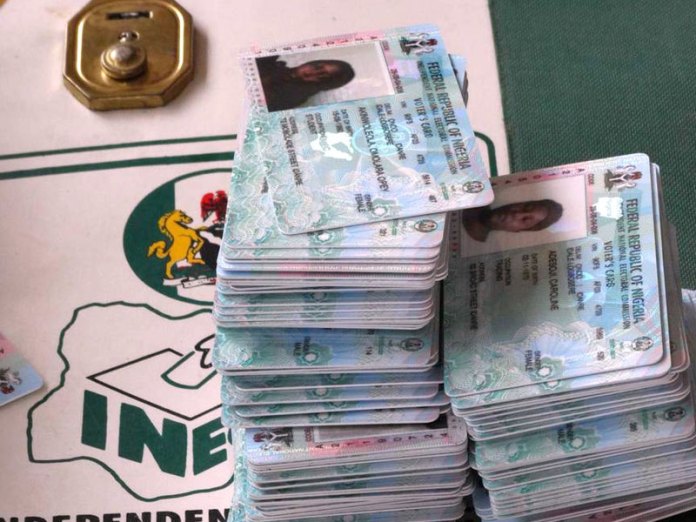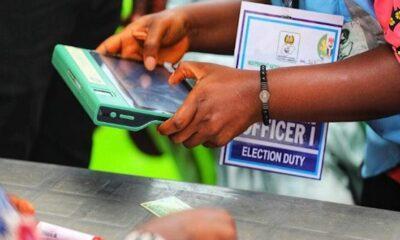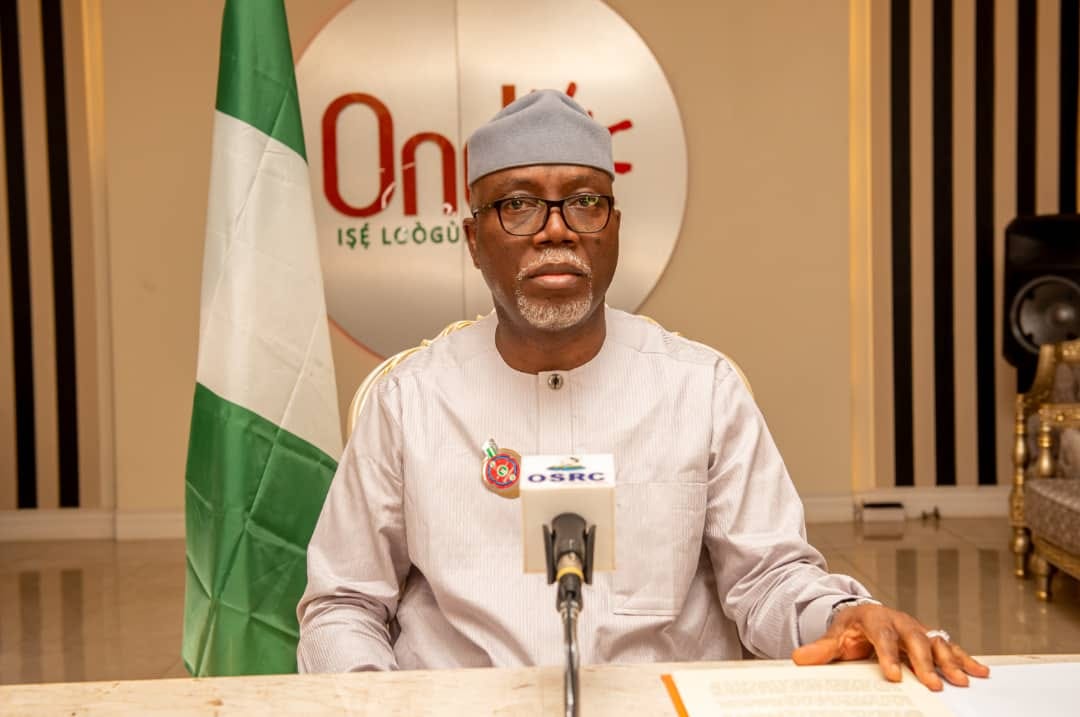The Independent National Electoral Commission (INEC) has pledged to publish a comprehensive list of its new polling units across the nation next week.
The INEC Chairman, Prof. Mahmood Yakubu, disclosed this on Monday in Abuja.
Yakubu was speaking at the formal handing over of a new state of the art fire truck, deployed to the Commission’s headquarters in Abuja by the Federal Fire Service (FFS).
He said that details of the locations of its registration centers and the procedure for the commencement of online registration for resumption of nationwide Continuous Voter Registration (CVR) would be made available in the second week of May.
He expressed appreciation of the commission to the FFS and all security agencies for the demonstration of their support to protecting INEC facilities
He said that the support was coming on the eve of the resumption of the CVR nationwide in the next three weeks.
“We earlier assured Nigerians that we shall conclude work on the expansion of voter access to polling units and make the new polling units available to citizens ahead of the CVR exercise.
“I am glad to report that we have accomplished this task for the first time in 25 years.
“A comprehensive list of the new polling units will be published next week.
“Similarly, details of the locations of the registration centers and the procedure for the commencement of online registration will also be made available after a series of regular consultative meetings with stakeholders next week,” Yakubu said.
He said that as a member of the Inter-Agency Consultative Committee on Election Security (ICCES) FFS had been as concerned as other security agencies about the recent attacks on our offices across the country.
“This is particularly so because out of the 42 attacks on our facilities nationwide, 18 incidents resulted from arson and three more by a combination of arson and vandalisation.”
Yakubu recalled that concerned by those incidents, the commission convened an emergency meeting of ICCES last week of April, where the security agencies renewed their determination to collaborate more with the commission.
According to him, they pledged to assist the commission address the challenge beyond the routine protection of INEC assets and the security of its officials, voters, observers, the media, candidates and their agents during elections.
“On its part, the Federal Fire Service offered to deploy an additional state-of-the-art fire engine to the INEC headquarters to complement the two existing trucks.
“At the same time, it directed its state offices to take additional protective measures around other INEC facilities nationwide.
“Today’s inauguration of the new fire engine is another affirmation of the support to the commission from the FFS whose personnel, already deployed permanently to the commission
“The personnel will continue to operate and maintain the fire engines and other firefighting equipment installed by INEC,” Yakubu said.
Speaking earlier, the Controller-General (CG) of FFS, Alhaji Liman Ibrahim said the deployment of the firefighting truck was premised on recent fire attacks on INEC offices in different parts of the country.
Ibrahim, represented by the Assistant Controller-General of the service, Mr Samson Karebo, said the deployed truck would serve as fire cover for the premises of INEC headquarters and the entire Maitama vicinity of Abuja.
“The FFS is taking this step as a proactive measure to protect our critical infrastructure and help to protect our economy by forming synergy with all stakeholders in protecting our environments.
“Our center is focused on bringing firefighting operations to every part of the country as part of our statutory duties by having a presence in virtually every state in Nigeria
“The FFS will very soon be moving into all senatorial headquarters in the country. That is how we want to operate for now so that we can touch every corner of this country,” Ibrahim said.
He called for the cooperation of all for the service to better serve the nation by not molesting FFS staff in the line of duty.
In his remarks, the National Security Adviser (NSA) retired Maj.-Gen. Babagana Monguno, who is also Co-Chair of ICCES, described the deployment of the truck as a demonstration of President Muhammadu Buhari’s commitment to sustain Nigeria’s democracy and address insecurity.
Monguno said that the gesture also symbolised commitment to a clear affirmation of Buhari toward protecting institutions of government, toward securing their property, toward fighting acts of irresponsibility, vandalisation and outright criminality.
“The President is determined as much as he can within the confines of legality to suppress any kind of criminality and destruction of public property.
“This is something that he is determined to do regardless of whatever the challenges are.
“He will apply all the resources in his disposal in his capacity as the Commander in Chief of the Armed Forces to ensure the wider Nigerian society is safe, stable and is allowed to carry out its legitimate undertaking, free from any act of insecurity,” he said
Monguno urged all other security agencies not to relent in ensuring that they continued to protect lives and property.
The Inspector-General of Police, Mr Usman Baba pledged commitment to security agencies to work with INEC and protect INEC’s facilities, citizens’ life and property.
Also at the occasion was the Minister of Interior, Ogbeni Rauf Aregbesola, represented by Director of Joint Services, Mr Peter Obodo; as well as the representative of Director-General, Directorate of State Services, Tony Adikweruka.


 Naira4 weeks ago
Naira4 weeks ago


 News3 weeks ago
News3 weeks ago
 Education4 weeks ago
Education4 weeks ago


 Social Media4 weeks ago
Social Media4 weeks ago
 Technology4 weeks ago
Technology4 weeks ago
 Investment4 weeks ago
Investment4 weeks ago


 Dividends4 weeks ago
Dividends4 weeks ago
 Economy4 weeks ago
Economy4 weeks ago
















